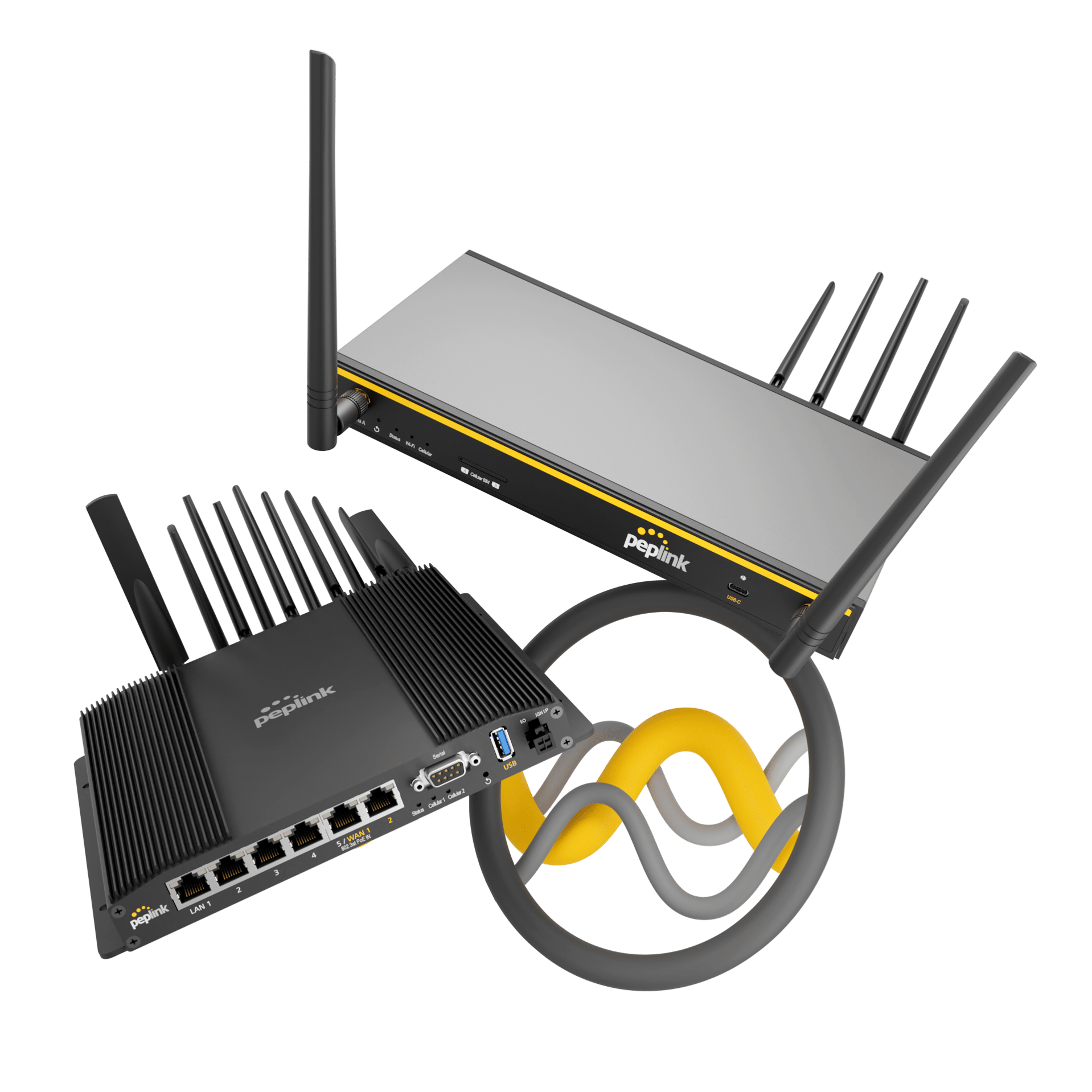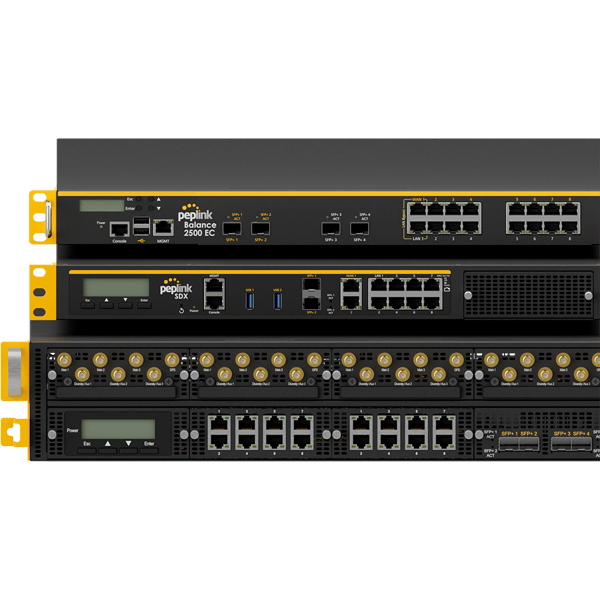-

-

-

-

-

-

Iridium with Peplink
Global backup connectivity for your cellular and satellite networks
-

Starlink with Peplink
Robust Internet Solutions for the most challenging business environments
-

SpeedFusion
Internet bonding and management for unbreakable, rock-solid connections
-

InControl and InTouch
Remote management and control for true zero-touch deployments
PRODUCTS
SERVICES
-
SpeedFusion Connect
Service PlansCloud-based service for bonding multiple connections from a router into a single, high-reliability Internet pipe. Like a commercial VPN service on steroids.
-
eSIM Data Plan
See Data PlansPeplink’s very own multi-carrier 5G/LTE data plans, with pricing and flexibility designed for affordable backup and enterprise use.
-
InControl 2
Learn MorePeplink’s public (or optionally private) cloud-based endpoint management system.
- True zero-touch provisioning
- Advanced remote management tools
-
Care Plans
See Care PlansTake advantage of a Care Plan that offers it all – from technical support, hardware warranty, backup connectivity to software updates.
-
Peplink App
Learn MoreRemotely configure your routers and services, and receive real-time notifications on your network with our app.







Supercharge Your Connectivity
Peplink makes connectivity reliable. Offering solutions for businesses of all kinds in some of the most challenging networking environments, Peplink helps tens of thousands of customers enhance Internet reliability, increase bandwidth and reduce cost. Recognized for our SD-WAN offerings, Peplink provides a full line of networking equipment, software solutions and services to meet the needs of businesses from the small shop to large enterprise.
About Peplink
SpeedFusion is Peplink’s patented system that enables rock-solid connectivity using commodity connections such as satellite, cellular (LTE or 5G), DSL or cable and can provide backup or aggregation of ethernet or fiber. SpeedFusion makes the most of and improves any available connections for streaming, VoIP, file transfer, critical communications or any high speed data transfers that depend on fault-free connection reliability.
About SpeedFusionCustomer Success Cases
Industries around the world use Peplink products to build and connect their network.



How to Buy
Talk to our experts to find the best solution for your vertical market.
Want to offer Peplink to your customers? Come join our community!
Become a Partner »










